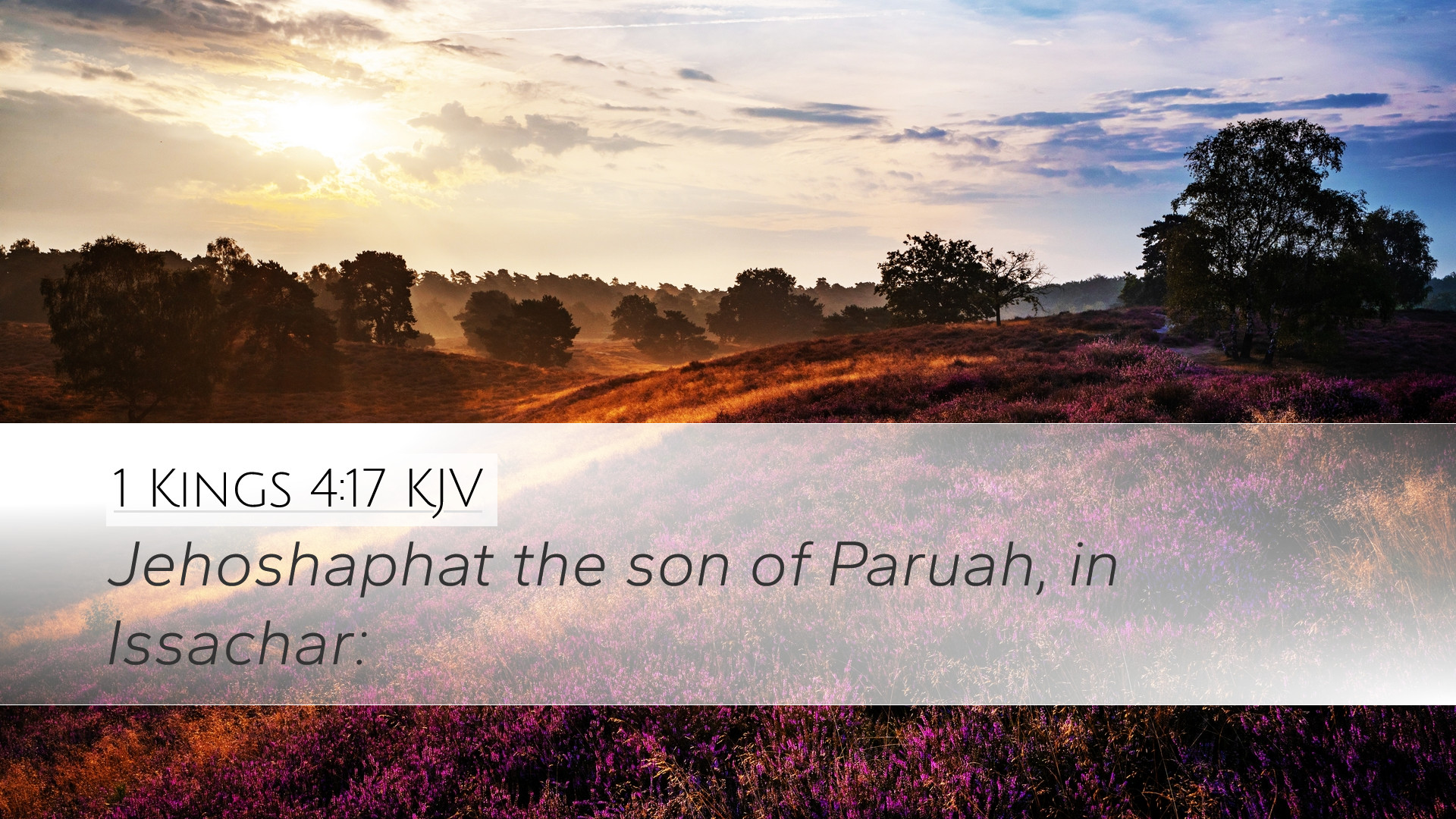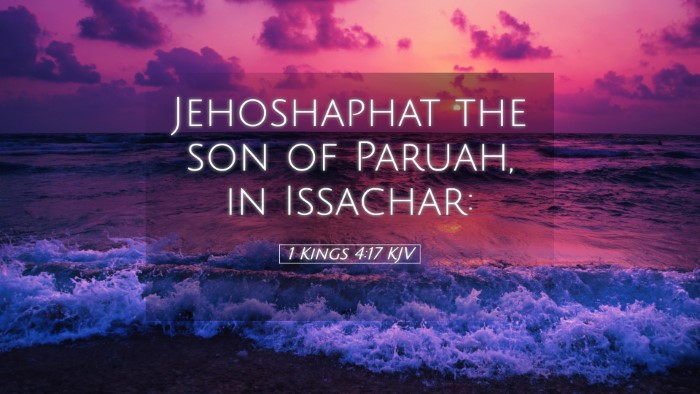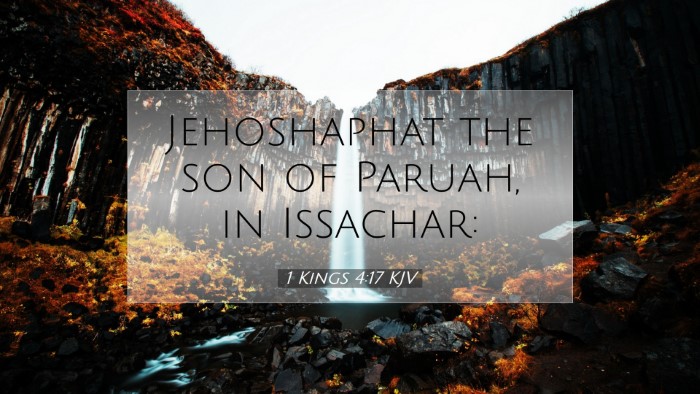1 Kings 4:17 - Commentary
Bible Verse: "Jehoshaphat the son of Paruah, in Issachar;"
Contextual Background
The verse belongs to a section of 1 Kings that describes King Solomon's administration and the governmental structure he put in place to manage Israel’s extensive territories.
This specific mention of Jehoshaphat serving as a leader in Issachar illustrates not only the political organization of Solomon's kingdom but also emphasizes the roles played by different tribes in governance during this prosperous time.
Insights from Commentaries
-
Matthew Henry's Commentary
Henry highlights the theme of wisdom and organization that permeates Solomon's reign. He notes that leadership positions were filled with capable men who aided the king in maintaining order and justice.
Henry draws attention to the appointment of Jehoshaphat within the tribe of Issachar, a tribe known for its discernment and knowledge of the times (1 Chronicles 12:32). This alludes to the importance of possessing wise counsel in governance.
-
Albert Barnes' Notes on the Bible
Barnes particularly emphasizes the significance of Jehoshaphat's role among the thirty leaders appointed by Solomon. He interprets these selections as a clear indication of Solomon's strategic governance model, which relied on trusted advisors.
He also notes that Issachar, in biblical history, was a tribe that was associated with understanding and wisdom. This implies that the tribe's leaders would be particularly suited to craft sound policies and offer insights into the political affairs of the time.
-
Adam Clarke's Commentary
Clarke provides an elaborate discussion on the historical context of Jehoshaphat's leadership. He presents that Jehoshaphat’s appointment was not merely nominal but essential to the successful administration of Solomon’s reign.
He discusses the tribe of Issachar's unique role in the legacy of Israel, noting how they, and by extension Jehoshaphat, contributed to both military and civic affairs. Clarke ties this into the broader narrative of Israel’s unity under Solomon’s reign.
Theological Reflections
This passage, while seemingly a simple listing of names and titles, encompasses profound truths about leadership and governance in a spiritual context. It invites reflection on the nature of godly leadership:
-
Leadership Requires Wisdom:
Under Solomon’s rule, the appointment of individuals from various tribes indicates a leadership style characterized by inclusivity and reliance on the wisdom of those who understand the local contexts.
-
Importance of Community:
The selection of Jehoshaphat from Issachar symbolizes the importance of community and representation in leadership roles. It assures that the needs and insights of diverse tribal groups are valued.
-
Prophetic Insight:
The historical reference to the tribe of Issachar is significant, as it conveys that spiritual insight and understanding of the times is crucial for effective leadership in any era.
Practical Applications
For pastors, theologians, and students of the Word, the lessons embedded in 1 Kings 4:17 can be applied in various ways:
- Encourage Diverse Leadership: Reflect on how your church or organization can embrace diverse perspectives in leadership roles, drawing on the strengths of various groups.
- Seek Wise Counsel: Prioritize seeking counsel and wisdom from trusted advisors in different fields, just as Solomon did.
- Focus on Meaningful Community Engagement: Strive to ensure that community voices are heard in decision-making processes, recognizing the value each brings to the table.
Conclusion
1 Kings 4:17 is a poignant reminder of the administrative wisdom and foresight exemplified during a crucial period in Israel's history. It not only informs about the structure of Solomon's government but also illuminates timeless principles of leadership, community involvement, and the pursuit of divine wisdom that serves as guiding posts for today’s spiritual and secular leaders alike.


